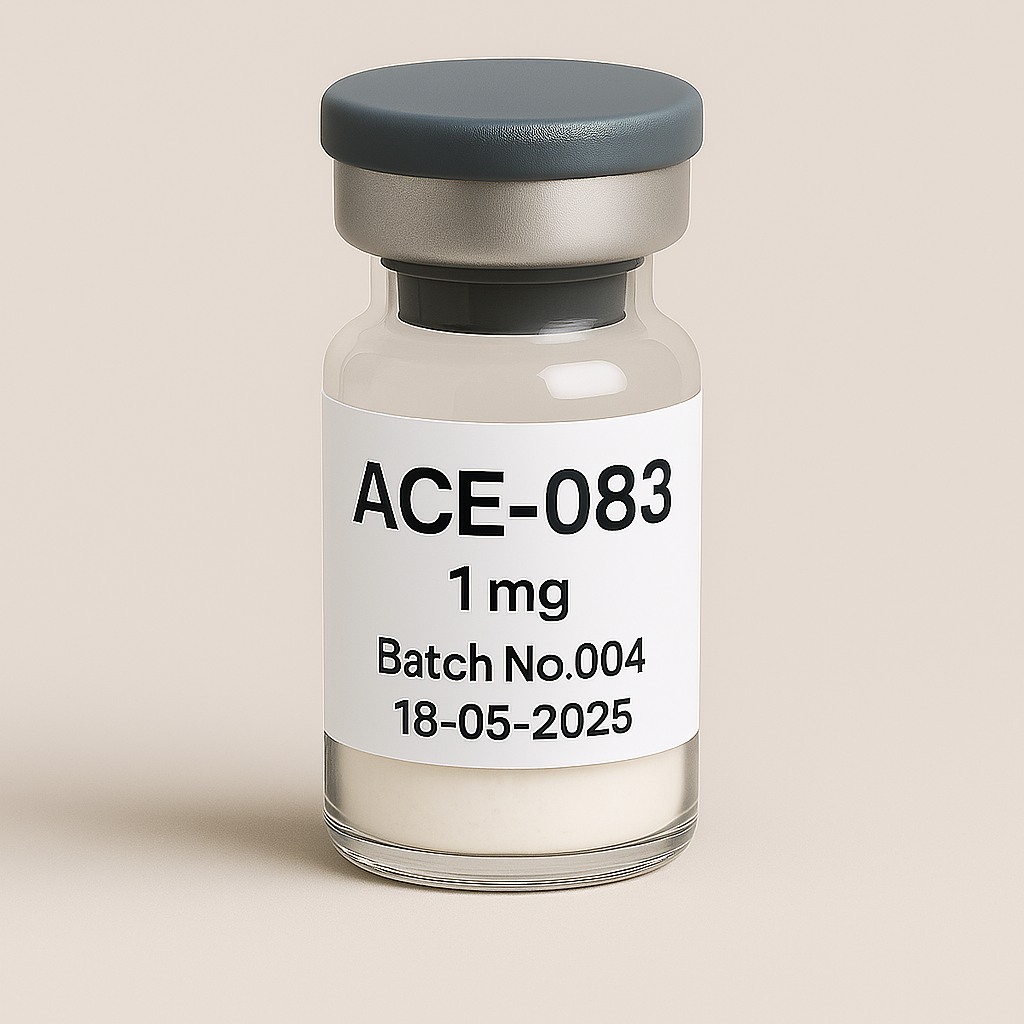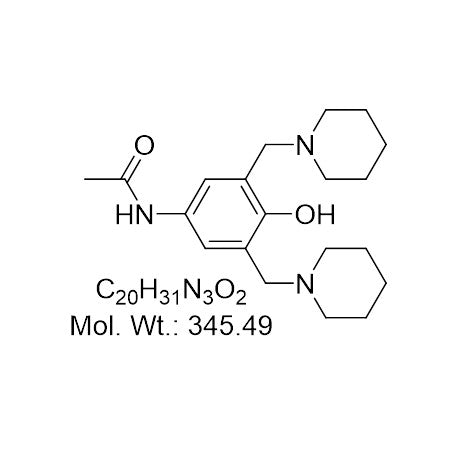
ACE-083 1 mg vial
Pickup currently not available
NOT FOR HUMAN CONSUMPTION
ACE-083 is a therapeutic protein designed to inhibit myostatin, a protein that negatively regulates muscle growth, with the aim of promoting muscle hypertrophy and strength. Developed by Acceleron Pharma, ACE-083 targets conditions characterized by muscle wasting, such as muscular dystrophy and amyotrophic lateral sclerosis (ALS). By blocking myostatin, ACE-083 allows for increased muscle mass and improved physical function. It is administered through subcutaneous injections and has undergone various clinical trials to evaluate its safety and efficacy, demonstrating potential benefits in muscle growth. While research is ongoing and it has not yet received regulatory approval for widespread use, ACE-083 represents a promising approach to treating muscle-wasting disorders and improving the quality of life for affected individuals.
Mechanism of Action:
- Myostatin Inhibition: ACE-083 is engineered to bind to myostatin and prevent its activity. Myostatin functions as a negative regulator of muscle growth; when its action is inhibited, muscle hypertrophy can occur, leading to increased muscle size and strength.
- Addressing Muscle Wasting: By promoting muscle growth, ACE-083 has the potential to counteract muscle-wasting conditions resulting from various factors, including chronic diseases, aging, or genetic disorders.
Development and Target Indications:
-
ACE-083 was developed by Acceleron Pharma and initially targeted conditions like:
- Muscular Dystrophy: A group of genetic diseases characterized by progressive muscle degeneration and weakness.
- Amyotrophic Lateral Sclerosis (ALS): A progressive neurodegenerative disease that impacts motor neurons and leads to muscle wasting.
- Other Muscle Disorders: Conditions that result in muscle atrophy or loss of strength.
Clinical Trials and Research:
- ACE-083 has undergone clinical trials to evaluate its safety, dosage, and efficacy in increasing muscle mass. Some key points from its clinical development include:
- Phase 1/2 Clinical Trials: Early studies focused on evaluating the pharmacokinetics (how the drug is absorbed, distributed, and metabolized) and pharmacodynamics (the effects of the drug on the body) in healthy volunteers and affected populations.
- Primary Outcomes: Trials often measure changes in muscle volume, strength, and functional capabilities to determine the drug’s effectiveness.
- Preliminary studies indicated favorable safety profiles and potential benefits in increasing muscle mass in targeted patient populations.
Administration:
- Route: ACE-083 is typically administered via subcutaneous injection, which allows for localized delivery and absorption of the drug. The dosing schedule may vary based on trial protocols and specific indications being treated.
Potential Benefits:
- Increased Muscle Mass: Patients with muscle-wasting conditions may experience improved muscle bulk and strength.
- Enhanced Functionality: Increased muscle strength may result in better mobility, physical performance, and overall quality of life.
- Disease Management: For individuals with progressive muscular disorders, ACE-083 may provide therapeutic options to help manage symptoms and delays in disease progression.
Safety and Side Effects:
- As with any therapeutic intervention, it is essential to consider potential side effects. Common concerns with myostatin inhibitors can include:
- Injection Site Reactions: Localized pain or irritation where the drug is administered.
- Hormonal Imbalances: Potential disruptions in the endocrine system as a result of muscle growth stimulation.
- Long-term Effects: Ongoing research is necessary to understand any long-term safety concerns and the overall impact on health.
Regulatory Status:
- As of the latest updates, ACE-083 was still under investigation and had not received regulatory approval for widespread clinical use. Its availability might have been limited to clinical trial participants.
Future Perspectives:
- Continued research into ACE-083 will help determine its place in the treatment landscape for muscle-wasting conditions. Positive outcomes from clinical trials could pave the way for its approval and usage as a valuable therapeutic option.
Reference
Kambadur, R., et al. (1997). "Myostatin inhibits myoblast proliferation and differentiation by reducing the expression of bHLH muscle regulatory factors." The Journal of Biological Chemistry, 272(51), 36894-36900.
Acceleron Pharma Inc. (2016). "A Study to Evaluate the Safety and Efficacy of ACE-083 in Patients with Facioscapulohumeral Muscular Dystrophy (FSHD)." Available via ClinicalTrials.gov (NCT02800781). This trial assesses the safety and effectiveness of ACE-083 in individuals with a specific type of muscular dystrophy.
Lin, J. M., et al. (2016). "Therapeutic Potential of Myostatin Inhibitors." Frontiers in Physiology, 7, 254.


